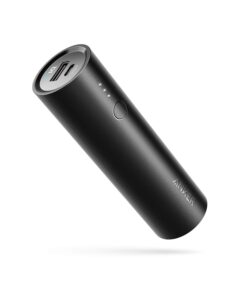If you’re wondering how long it takes to charge a Ryobi battery, you’ve come to the right place. The process of charging your Ryobi battery doesn’t have to be a mystery. In fact, we’ve got all the answers you need to power up your Ryobi tools efficiently and get back to work in no time. So, how long does it take to charge a Ryobi battery? Let’s dive into the details and find out.
How Long Does It Take To Charge A Ryobi Battery?
If you’re a proud owner of a Ryobi power tool, you likely understand the importance of having a reliable battery. After all, a charged battery is the lifeblood of any cordless tool, enabling you to work efficiently and effectively. But how long does it take to charge a Ryobi battery? In this article, we’ll explore the various factors that influence charging time and provide you with some helpful guidelines to ensure you always have a fully charged battery when you need it.
Understanding Ryobi Battery Types
Before we dive into the charging process, it’s essential to understand the different types of batteries Ryobi offers. Ryobi manufactures both lithium-ion (Li-ion) and nickel-cadmium (NiCd) batteries, each with its own characteristics and charging requirements.
Lithium-ion batteries have become increasingly popular due to their higher energy density, longer run time, and lighter weight compared to NiCd batteries. They also don’t suffer from the “memory effect,” which can reduce the overall capacity of the battery. On the other hand, NiCd batteries are known for their robustness and ability to withstand harsh conditions.
Lithium-ion (Li-ion) Batteries:
- Offer higher energy density
- Longer run time
- Lighter weight
- No memory effect
Nickel-cadmium (NiCd) Batteries:
- Robust and durable
- Can handle harsh conditions
Factors Affecting Charging Time
Several factors affect the charging time of a Ryobi battery. By understanding these factors, you can better estimate how long it will take to charge your battery fully.
Battery Capacity
The capacity of the battery, typically measured in ampere-hours (Ah), plays a significant role in determining the charging time. A higher capacity battery will generally take longer to charge than a lower capacity one.
Charger Type
Ryobi provides different types of chargers, including standard chargers and “fast” chargers. Fast chargers are designed to charge batteries more quickly but may not be compatible with all battery types. Always check your battery’s compatibility with the charger you are using to ensure optimal charging speed.
Charger Output
The charger’s output power, measured in volts and amps, also affects the charging time. Higher voltage and amperage ratings typically result in faster charging times.
Battery Condition
The condition of the battery plays a role in determining the charging time. Older or heavily used batteries may take longer to charge compared to newer ones.
Temperature
Extreme temperatures can affect the charging time of batteries. Charging a battery in hot or cold conditions may slow down the charging process.
Charging Times for Ryobi Batteries
While charging times can vary depending on the factors mentioned above, we can provide you with some general estimates based on Ryobi’s recommendations.
Lithium-ion (Li-ion) Batteries:
- Standard Charger (1.8A output): 45 minutes to 1 hour for a 2.0Ah battery
- Fast Charger (4.0A output): 30 minutes for a 2.0Ah battery
Nickel-cadmium (NiCd) Batteries:
- Standard Charger (1.8A output): 3 to 6 hours for a 1.5Ah battery
- Fast Charger (4.0A output): 1 to 2 hours for a 1.5Ah battery
It’s important to note that these estimates are general guidelines and may vary depending on the specific battery and charger combination you are using. Always refer to the manufacturer’s instructions for accurate charging times and recommendations.
Tips for Efficient Battery Charging
To ensure you get the most out of your Ryobi batteries and maximize their lifespan, consider the following tips when charging:
Avoid Overcharging
Leaving a fully charged battery connected to the charger for an extended period can lead to decreased battery performance over time. Once your battery is fully charged, disconnect it from the charger.
Charge in Moderate Temperatures
Extreme temperatures can negatively affect battery performance. Whenever possible, charge your batteries in a moderate temperature environment to optimize charging efficiency.
Store Batteries Properly
If you’re not planning to use your battery for an extended period, it’s important to store it properly. Ryobi recommends storing batteries in a cool, dry place and ensuring they are charged at least 30% before storing them.
Keep Batteries Clean
Regularly check your batteries for dirt, dust, or any other obstructions. Clean the battery terminals using a soft, dry cloth to maintain proper electrical connections.
Use Genuine Ryobi Chargers
To ensure optimal performance and safety, always use genuine Ryobi chargers designed for your specific battery model. Using third-party chargers may result in suboptimal charging times or potentially damage your battery.
Knowing how long it takes to charge your Ryobi battery is crucial for planning your work effectively. Factors like battery capacity, charger type, charger output, battery condition, and temperature can impact charging times. By adhering to Ryobi’s recommendations and following proper battery charging practices, you can ensure that your Ryobi batteries are always ready to power your cordless tools.
Remember to consult the instructions provided with your specific battery and charger to get accurate charging times and recommendations. By taking care of your batteries and charging them efficiently, you can enjoy extended run times and a longer lifespan for your Ryobi power tools.
Frequently Asked Questions
How long does it take to charge a Ryobi battery?
The charging time for a Ryobi battery depends on the specific model and capacity of the battery, as well as the charger being used. However, on average, a Ryobi battery takes around 60 minutes to fully charge.
Can I use a higher voltage charger to charge my Ryobi battery faster?
No, it is not recommended to use a charger with a higher voltage than specified for your Ryobi battery. Using an incompatible charger can potentially damage the battery or even pose a safety risk. Always use the charger that is specifically designed for your Ryobi battery.
How do I know when my Ryobi battery is fully charged?
Ryobi batteries typically have indicators to show the charging status. Most chargers have a LED light that changes color or turns off when the battery is fully charged. Additionally, some Ryobi tools may have a battery gauge that displays the charging status on the tool itself.
What factors can affect the charging time of a Ryobi battery?
The charging time of a Ryobi battery can be influenced by several factors. These include the battery’s capacity, the charger’s output power, the ambient temperature, and any existing damage or wear on the battery. It’s important to follow the recommended charging guidelines provided by Ryobi for optimal charging performance.
Can I leave my Ryobi battery on the charger for an extended period?
It is generally safe to leave a Ryobi battery on the charger after it is fully charged. Ryobi chargers are designed to automatically switch to a maintenance mode once the battery reaches full charge, which helps to prolong the battery’s overall life. However, it is always a good practice to unplug the charger when it is not in use or if you plan to store the battery for an extended period.
Can I use a fast charger with my Ryobi battery?
Yes, Ryobi offers fast chargers that can significantly reduce charging time compared to standard chargers. These chargers are specifically designed to work with Ryobi batteries and provide a faster charging option for users who need to quickly recharge their batteries. However, it’s important to note that using a fast charger continuously may have an impact on the overall lifespan of the battery.
Final Thoughts
The charging time for a Ryobi battery depends on several factors, including the model of the battery and the charger being used. On average, it takes around 30 to 60 minutes to charge a Ryobi battery fully. However, rapid chargers are available that can charge the battery within 15 to 30 minutes. It’s essential to reference the manufacturer’s instructions for the specific battery and charger you have to ensure the optimal charging time. So, if you’re wondering how long it takes to charge a Ryobi battery, it can range from 15 minutes to an hour, depending on the charger and battery model.



